Top-Rated Java Classes in Pune: Boost Your Coding Skills with Expert Instructors

4.9/5
Java Full Stack Reviews
Hurry Up!
batch is starting soon...
only 5 seats are available for this batch
Advantages
- Lifetime placement assistant Till You Get A Job
- Unlimited Placement Calls
- Affordable cost
- 10+ years industry experienced trainers

10000+ Happy Students.
Join ECTI’s industry-aligned Java classes in Pune and gain expertise in Java full stack development. Our comprehensive curriculum covers essential frontend and backend technologies, Java frameworks, database management, and advanced development tools. Designed for both beginners and professionals, our expert-led training includes hands-on projects, interactive sessions, and personalized career guidance to ensure you’re fully prepared for a high-growth tech career. With our lifetime job assistance, step confidently into the industry and unlock rewarding opportunities as a skilled Java Full Stack Developer.
Flexible Timing Real Time Project Expert Trainers Reasonable Fees Certifications Placement Support

4.9/5
Java Full Stack Reviews
Hurry Up!
batch is starting soon...
only 5 seats are available for this batch
Advantages
- Lifetime placement assistant Till You Get A Job
- Unlimited Placement Calls
- Affordable cost
- 10+ years industry experienced trainers

10000+ Happy Students.


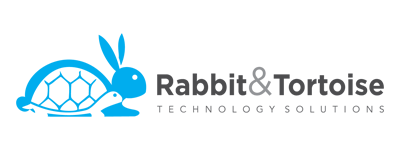
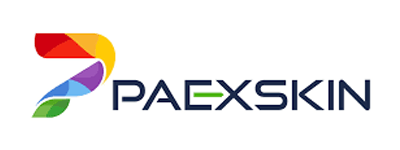
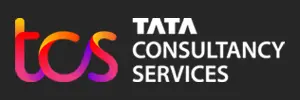


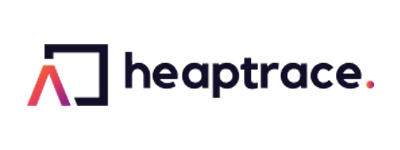
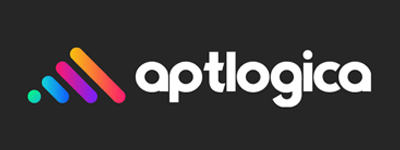
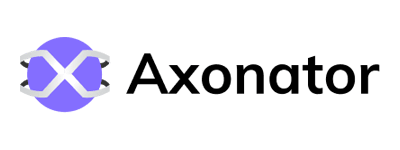







Rushikesh Pawar
TALENTRUPT RPO LLP
System Administrator
July, 2024
MIT ADT UNIVERSITY PUNE
B.Tech mech - 2022

Piyush Yadav
Future Tech Design Solutions Pvt. Ltd. Gurugram.
Digital Modeler Class A
December, 2024
University of Engineering and Management, Jaipur (Rajasthan)
B. Tech (Mechanical Engineering) -2021

Shubham Sawalkar
Studio Key designs LLP
CAS Modeller
September, 2024
Symbiosis Skill & Professional University
B.Tech.(Automtion ) - 2021

Sagar Valunj
Kamjritztex IT solutions
Java Fullstack Web Developer
December, 2024
BE (IT) - 2023
Envision Java Course Highlights
Enhance your career with our comprehensive Java Full Stack Developer Course in Pune. Envision Java course has been designed to equip you with in-demand skills, this course covers MySQL, React.js, jQuery, JSP, Servlet, Core Java, Advanced Java, Spring, Spring Boot, JDBC, Hibernate, and more. Learn the essentials of front-end technologies like HTML, CSS, Bootstrap, and JavaScript, as well as powerful back-end development with JSP and AJAX, enabling you to build and maintain high-performance web applications.
As the best Java programming course in Pune, our curriculum is tailored to prepare you for real-world applications, from interactive websites to robust database-driven apps. Whether you're a beginner or looking to advance, our expert instructors ensure you’re industry-ready with hands-on experience. You’ll build a professional portfolio with projects such as single-page applications, responsive websites, dynamic APIs, and Java-powered app development.
Key Features of Java Full Stack Developer Course

Certification
Earn a shareable certificate upon course completion.

Flexible Learning
Online and offline course options available.

Comprehensive Curriculum
Updated syllabus covering both core and advanced Java technologies, including 20+ in-demand tools.

Skill Levels
Suitable for beginners to advanced learners.

Earn a Certificate upon completion

Course Duration
624 hours, with a suggested pace of 24 hours/week, including real-time projects and hands-on sessions.

Experienced Instructors
Learn from industry experts with 24+ years of experience.

Personal Mentorship & Classroom Training
One-on-one guidance and live interactive sessions.

Practical Focus
100% practical sessions with 10 lesson-end and 4 phase-end projects.

Job Assistance
Lifetime job assistance, interview preparation, and internship opportunities.

Affordable & Flexible
EMI options and cost-effective training to fit your budget.

Proven Success
2000+ learners, 100+ batches completed with 100% course completion rate.
Why ECTI?
Lifetime Job Assistance
With our Lifetime placement assistant courses, you can achieve your career goals.

Cost Effective
We know how much money you need to invest in getting technical knowledge. Thus we have made sure the courses we provide are not just the best but also absolutely cost effective.
Industry Experts Lectures
With our Lifetime placement assistant courses, you can achieve your career goals.
Free Interview Training
Interview technique is a major hurdle for students trying to get a job. At Envision, we ensure your development.
Mock Interviews
We also make sure that a fresher isn't a fresher when it comes to his interviews from experts and people actually working in HR at various renowned companies.
Most Updated Syllabus
We are proud to mention that our syllabus is updated every quarter.

Complete Java course syllabus - Learning path
Master the building blocks of web development with HTML and CSS. Learn how to create visually appealing and responsive web pages using modern design principles and techniques. This module is perfect for understanding layout structures and creating engaging user experiences.
Key Topics:
- Building semantic web pages with HTML5.
- Styling and layout design using CSS3.
- Implementing responsive design principles.
- Using Flexbox and Grid for adaptive layouts.
Bootstrap simplifies responsive web design with its powerful pre-built components and grid system. This module will help you design mobile-first, cross-device compatible web applications effortlessly.
Key Topics:
- Responsive web design using Bootstrap’s grid system.
- Customizing forms, buttons, and navigation bars.
- Building mobile-first web applications.
- Integrating CSS with Bootstrap for unique styling.
Develop dynamic and interactive web applications with JavaScript and jQuery. This module will enable you to manipulate the DOM, handle events, and build responsive user interfaces effectively.
Key Topics:
- Understanding JavaScript fundamentals and syntax.
- DOM manipulation and event handling.
- Simplified scripting with jQuery.
- Using AJAX for seamless data fetching.
ReactJS empowers developers to build fast and scalable single-page applications (SPAs). This module dives into React’s component-based architecture, enabling the creation of robust front-end solutions.
Key Topics:
- Building components with JSX.
- Managing state and props effectively.
- Lifecycle methods for dynamic UI updates.
- Creating SPAs with routing and hooks.
Gain expertise in Java, a versatile programming language for backend development. This module covers object-oriented programming concepts and advanced features like streams and multithreading.
Key Topics:
- Fundamentals of OOP with Java.
- Collections framework and exception handling.
- Advanced Java concepts like Streams and Lambdas.
- Creating dynamic backend solutions with JSP and Servlets.
Master database management with MySQL to design, optimize, and query databases. This module ensures you can seamlessly integrate databases with your web applications.
Key Topics:
- Understanding relational database concepts.
- Writing SQL queries for data manipulation.
- Optimizing database performance.
- Connecting databases to Java applications.
Hibernate and Spring are vital frameworks for Java developers. Learn how to build scalable and secure enterprise applications with these tools.
Key Topics:
- ORM concepts with Hibernate.
- CRUD operations and database mappings.
- Building REST APIs with Spring Boot.
- Dependency injection and MVC architecture.
About the Full Stack Java Programming Certificate Course
Full Stack Java Development Professional Certificate equips you with essential skills and technical knowledge to launch a career as a full stack developer - no prior programming experience required. You'll gain expertise in widely-used tools and technologies like HTML, CSS, JavaScript, React, MySQL, and Bootstrap, developing the practical skills needed to build, deploy, test, and manage full stack applications in today’s tech-driven job market.
Throughout the program, you'll complete hands-on projects across various popular technologies, building a portfolio to showcase your abilities to potential employers. Upon completion, you'll earn a Java certificate recognized by industry leaders, along with access to career support resources. This credential validates your job readiness and opens doors to exciting opportunities in full stack Java development.
Applied Learning Project
Throughout the program, you'll complete hands-on projects across various popular technologies, building a portfolio to showcase your abilities to potential employers. Upon completion, you'll earn a Java certificate recognized by industry leaders, along with access to career support resources. This credential validates your job readiness and opens doors to exciting opportunities in full stack Java development.

Java training course Placement Support in Pune by Envision
Get job-ready with Envision’s *Java Full Stack Developer Course in Pune*, offering Lifetime Job Assistance with placements in leading tech companies like Deloitte, TCS, Cognizant, Tech Mahindra, and Capgemini. Our placement process is designed to help you build a career with salaries starting from 2.5 LPA.

Individual Grooming
Guidance on aptitude, resume building, and interview preparation.

Mock Tests & Interviews
Industry-relevant mock tests and interviews with personalized feedback.

Profile Matching
Align your profile with top job openings.

Personal Coordinators & Salary Negotiation
Dedicated support and salary negotiation tips.

Portfolio Building & Soft Skills
Boost your LinkedIn, resume, and soft skills to stand out.

Placement Webinars & Expert Insights
Regular webinars and insights from industry experts on placement trends.
With over 500+ hiring partners, Envision is your bridge to a successful tech career.
Expert Java Trainers in Pune: Learn from Industry Professionals
At Envision, we believe that great teaching is the foundation of successful learning, especially in our *Java Full Stack Developer course in Pune*. Our team consists of certified, highly experienced trainers with over 7 years in the industry, currently working with top MNCs and bringing their real-time project knowledge to every class.
Our expert trainers blend theory with hands-on, practical learning and provide students with real-world examples, ensuring they are job-ready. With a passion for teaching, they’re committed to helping students build confidence, prepare for interviews, and tackle live projects. Our trainers’ expertise guarantees that you’ll receive top-notch, industry-relevant training, empowering you to excel as a full stack developer in today’s competitive market.

Our students words speaks for us
FAQ's
Is Java full stack developer course in pune good for software engineer?
What skills required for Java Full Stack Developer?
Is Java enough to get a job?
1. Junior Java Developer
It is the starting position for a software engineer. The engineer is responsible for writing, analyzing, testing, and debugging the code in this position. They are generally a part of a team with leaders and mentors to whom they have to report.
As this is the developer’s first job, they must focus on getting familiar with all the industry practices and standards at this stage. One must also focus on developing new skills to get better at their craft and thus make it easier for them to have a better position in the same company or switch to a better company. It is one of the good Java career opportunities.
2. Senior Java Developer
The complete charge of a project is what generally a senior developer is responsible for. In addition, they report to the company’s executive officers and managers and write some code. They are also accountable for mentoring the developers that are new to the company or the project they are working on. It is seen as the standard job position for a developer.
3. Architect
The responsibility of a Java architect is to design and develop the application’s layout. They classify the different logic layers, which further helps separate concerns among the team members working on the project.
The expectation from the architect is to develop the best technologies that are well-matched for the software to be built and ensure their compatibility with each other.
These job postings are generally posted by top companies that don’t need a Java programmer who can do several things but just a programmer skilled in a particular area to optimize and enhance an existing product.
Apart from these, field-specific job postings require the programmer to be effective in a particular set of things. These include jobs like:
1. Java Web Developer
A full stack java developer course in pune is usually at a backend position, and the responsibilities include deployment and maintenance of the server-side code. It is very helpful if you know the basics of cloud computing as cloud-based systems are growing fast in the industry.
2. Android Developer
It is the most common job posting available and is also a required position in several start-ups. The developer’s responsibility includes adding features to the android applications or building one.
Since almost every company and service now has a mobile app, the market for these jobs is likely to persist in the future.
3. Java EE Developer
The responsibility that is given to the Java EE developer is of building and maintaining the enterprise applications. Big companies usually post these jobs, and they look for a developer with some industry experience.
4. DevOps Engineer
DevOps Engineer is one more opportunity for an experienced developer. There’s no formal career path to becoming a DevOps Engineer.
An experienced Java programmer passionate about managing the environment, automation, and improving overall structure can become a DevOps Engineer. These are either developers interested in network operations and deployments or system admins who have a passion for coding and scripting and move into the development side where they can improve the planning of test and deployment.
5. Solution Architect
The responsibility of a Solution Architect is to design applications or services for an organization. They typically are a part of a solution development team. They often work with an enterprise architect for the strategic direction and must have a balanced mix of business and technical skills. The job is to translate requirements created by functional analysts into the architecture and explain it through architecture and design artifacts.
A good understanding of fundamentals like Data Structure and Algorithms and System Design and Design patterns is a must to be a competent Solution Architect. As a Solution Architect, you should also be aware of different programming languages and technology stacks like Java, .NET, and other Web stacks.
6. Scrum Master
The scrum master is accountable for establishing the Scrum. A scrum is a lightweight framework that helps the developing team to generate value through adaptive solutions for complex problems. The responsibility of Scrum Master is to run Scrum meetings daily and solve any blocker that comes on the way. It requires prominent skills like project management subject matter and some coordination abilities.
Scrum Master is a relatively new career option compared to Project Manager and Business Analyst, but it is becoming increasingly popular among companies that follow Agile methodologies for development. Having a good amount of experience with your project and your business area comes in handy for becoming a Scrum Master.
7. Analyst
The job of an analyst involves designing or modifying business systems or IT systems. For understanding the problems and needs of business stakeholders and subject matter experts, the analyst interacts with them, gathers documents and analyzes business needs and requirements.
8. Full stack Java Developer
If you’re interested in working on web applications, you may consider a position as a java full stack developer. IT developers often lead web development teams that design new websites and update existing ones. Developers may create web-based applications for a company or work with many businesses as a consultant. As consultants, they may provide advice and complete tasks for businesses using their various skills related to web-based programming.
You must have the following skill to become a software developer:
In-depth understanding of how to design front-end frameworks.
Must have testing ability
Friendly with micro services and implement them in an application.
One must be familiar with various tools. It increases efficiency and works with a variety of web technologies. DevOps tools like Docker, Ansible and AWS help developers create applications quickly by helping them plan, test and monitor their code.
One must have extensive knowledge of libraries and understand how to create APIs within the code they write.
9. Freelancing
Various freelance websites present on the Internet like LinkedIn have made Freelancing easy and made networking with clients very fast using different online platforms. Freelancing can also work as a part-time Java career opportunity. It helps you in getting experience & add it to the CV as well.
But freelance isn’t that easy and comes with its challenges such as:
Less pay at the start
High competition
Irregular frequency of work
Demanding clients
Freelance work for Java developers can generally be categorized into two types, centered at two different kinds of freelancers.
Coding Jobs:
These are the gigs where you are required to work on a project or develop a new feature. These jobs are a very good start for your career. Fortunately, these jobs are mostly remote. You can freelance as a Java web developer or a Java app developer.
10. Consulting Developers
Those who have some years of experience in the industry usually get hired as developers. These jobs are generally posted by companies working on a short deadline targeting the launch or enhancement of a product or feature. These jobs are generally on-site work, and freelancers are part of the projects team. The contract ends at the end of the project.
Can a non IT person learn Java full stack course?
If you have prior knowledge of C language and the concepts, learning Java becomes easier. Java can be downloaded easily and anyone can download the JRE and run the Java program. There are many tutorials available on the tutorials point website where you can learn Java from scratch even without much coding background.
Is 6 months enough for a full stack web development course?
How long does it take to become a programmer? The answer is, as little as 90 days if you can learn full-time, and longer if you’re doing tutorials or coding boot camps part-time.
Related courses

Web development for beginners: basic concepts worth knowing

Latest Job Opening

New Course

Hello world!
